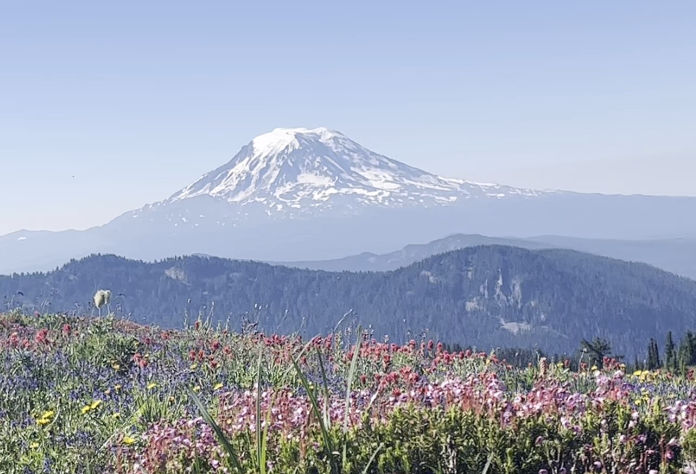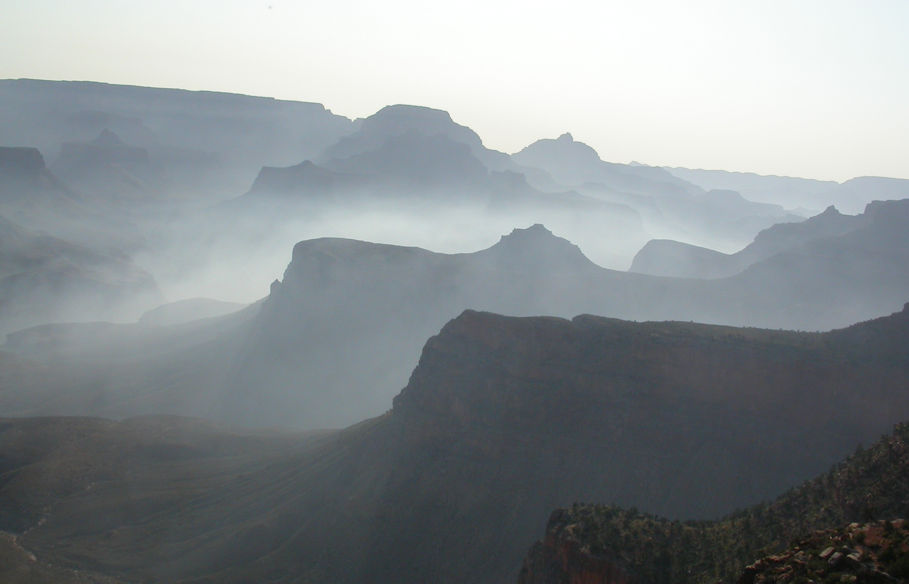Many people sometimes feel a certain sense of place. This feeling can come from varied ideas and experiences and, therefore, be impossible to pin down. Whatever it is, many acknowledge it, and few are oblivious. While physical places take up space, like cities, houses, restaurants, mountains, and beaches, the sense of them is primarily mental. We endow places with spiritual character when we ponder our experiences. Or we allow our senses, seeing, hearing, smelling, and feeling, in a place to give us good vibes.
Some places are entirely imaginary, such as the mind palace of Sherlock Holmes, which is not merely a fictional idea. (Yet, how real can you expect the imagining of a fictional character to be?) The internet provides advice on how to use Holmes’ technique for improved memory. Wikipedia discusses the method of loci, which is tracible to ancient Greece and Rome and involves techniques recommended, even way back then, to retain information.
Perhaps humans differ in how much we associate memories with physical places. Some people are less nostalgic than others. Some would say the value of a place relates to its characteristics, while others would see the value in their activities or interactions. They might suggest that people make a place.
Yet, the aspects we identify with a place can vary significantly between people. Take patriotic feelings about living in America. Is America great because of the virtues of its people? Or is the greatness related to how the Founding Fathers set up its democratic institutions? How about the beauty of its “purple mountain majesties” or “amber waves of grain”?
Some of us like to backpack, get up into the high country and appreciate wild landscapes and lofty mountain peaks. I am among these. We who venture into wild places are apt to combine the experience of sublime vistas or wild animal encounters with the refreshment of thinking or meditating in solitude without cell phones, televisions, or computers. Wild places combine beauty and remoteness, contributing to the positive mental states we associate with them.

But I want to tell you about a more mundane place that lodged into my consciousness before age seven. A Wikipedia article describes my early appreciation as a “primal landscape.”
Adults can sometimes have mistaken memories. They think they experienced something shown in a photograph or independently remember someone’s story. No adult shared my adventures in the woods behind our house.
I spent my first seven years in Monroeville, Pennsylvania. Our house was brand new, as my father oversaw its construction in a new neighborhood. We have photos of land-leveling machines moving dirt around and carving new streets. Photographs show our house and others under construction in 1957.
The long backyard of our lot ended in a fairly steep dropoff into a forest. The new neighborhood was probably populated mainly by young families, as the homes were relatively small starters for the burgeoning post-World War II society. We youngsters of the time are the Boomers of today. But next door to us was an elderly couple whose children had left home before they moved there.
When I was old enough to venture out, I made friends with other children in the neighborhood. I explored alone or with other friends, dropping down into the big woods. As far as we knew, it had no end. I did not fear the woods, nor did I go so far as to risk being lost. I remember specific events in the woods with my friend, Paul. No adults were with us. At five or six, we scrambled up a tree that had fallen against another and formed a ramp of thirty degrees. It had a diameter of at least two feet, giving us confidence we would not fall.
Some places give a sense of safety, such as a nest or comfortable living room. My woods, however, provided no assurance of safety but rather adventure and specialness. It was something I knew about that my parents and younger siblings did not. It was a natural playground, not a developed park. It had no trails other than what resulted from our explorations. A small creek added interest to us young explorers.
When I was seven, my father’s job took us away. We lived in Washington, DC, and New Orleans for the next four years before settling in Memphis, Tennessee. I was too young to question why I needed to part with my woods, nor was I unhappy in our new places. Still, I remembered everything about my time in the woods and considered it a place that had formed me.
Sixteen years later, I made my first return visit to that neighborhood. During a college break in Atlanta, I had reason to come northward. I visited a friend in Alexandria, Virginia, then attended a wedding in Reading, Pennsylvania. The trip was a convenient opportunity to visit the Gettysburg battlefield. (I was a bit of a Civil War buff.) From there, a short drive west would take me to see my woods in Monroeville.
In those days, no internet existed, so I did not know if the woods would be gone, turned into more streets and houses. I was happy to find it the same. The current homeowners of our old place let me walk through their backyard to where I always entered the woods as a kid. I quickly dropped down toward the creek. The place seemed unappreciated, with little sign of visitation. The residential streets provided no access points, and no one had made trails in the forest. I was alone in silence, except for twittering birds and rustling leaves.
My first thought was, doesn’t anyone else realize how extraordinary this woods is? But soon, I was overpowered by—what? A sense of place? Were the trees asking, “Where have you been?” Yet, admittedly, my maturing into adulthood brought back a different me than the one that had left. I returned with many pondered memories that imbued my previous experience with meaning. Experiences in other places had shaped me.
I gained a spiritual life. My parents attended a Presbyterian church in Monroeville and remained church-goers in all the places we lived. I probably got the idea there was a God when I was less than seven years old, playing in that woods. I don’t remember thinking much about it then. I don’t think I prayed at such a young age. I remember our family always went to the local donut shop after church.
In high school, my friends were more intentional about their spiritual lives than me. From my family, I had also gained an enjoyment of talking about things that mattered to people, much beyond sports and the weather. My father was a talented conversationalist who could get it going with anyone. I was probably more philosophical than your average teenager. Combining church-going and talking with friends who debated what it meant to be a Christian, I decided to get more serious about whether I believed in God and whether this Jesus character should be important to modern humans living two millennia after his time.
As I approached college years, I had seen enough of humans mistreating each other and various seemingly intractable problems of injustice that the teaching of Jesus stood out. What seemed even more striking was when people claiming to be Christian perpetrated unloving behavior. But I had no problem separating the wise teachings from those who talked the talk but didn’t walk the walk. I had known several people who grew up Christian and gave up the faith entirely due to seeing such behavior.
When I returned for the first time to my Pennsylvania woods, I did not expect the sense that would overcome me. Alone, as often I had been sixteen years earlier, I felt now a presence. I don’t mean a ghost or invisible Jesus. I sensed someone whispering: “I was with you back then, before you knew me.” And it felt like my entire experience of that woods had been a gift.
The Earth has many dangerous places, but these woods had never felt that way. As a young adult, I understood that sometimes places can be potentially threatening but at the same time spiritually sustaining. Some places give us clues that we can feel at home in the Universe.

When I moved to the Western US after college, I was attracted to another place that seemed spiritually infused: The Grand Canyon. I went backpacking there many times, both alone and with others. It often felt like an enormous sanctuary made by God. Yet, sometimes, I did feel hostility. On reflection, these feelings were not a sense that something was out to get me. It was more of a realization that the canyon was indifferent to me. No one whispered in my ear that I would be safe. Instead, I could get into serious trouble if I didn’t prepare. Indeed, many people die in the Grand Canyon every year, usually due to not being fully aware of what they are getting themselves into.
We all know that the Earth is a tiny dot of life in our solar system. Compared to the Universe, the Earth is like a speck of dust. We cannot survive outside of our minuscule bubble of an atmosphere. Even the moon is hostile to life. How can I feel at home in the Universe? The only way is probably by feeling that a Creator is behind all of this. We have been given this beautiful blue speck of dust to live on and each of us is a mere atom on that dust particle. Maybe it is all meaningless, and there has never been a god. I prefer to feel that life is a gift. A gift implies a giver.
The sense of place may be an illusion. After all, can we not admit that many mental constructs are illusions? Yet, we humans have evolved to be this way. We have survived for millennia on this planet. By now, however, we can see that the human population and environmental impact may begin to threaten our ongoing survival. Maybe a sense of place is one factor that may help save us.